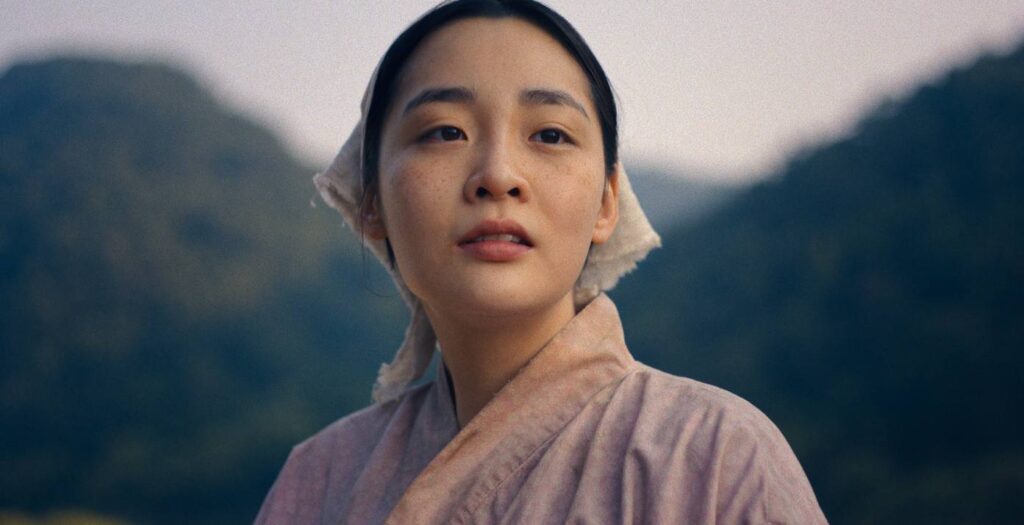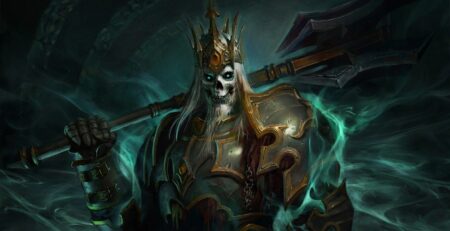Based on the New York Times bestselling novel of the same name by Min Jin Lee, Pachinko became a standout series for AppleTV+ when it was first released in 2022. Creator Soo Hugh has worked to adapt the beloved novel by using the television medium to the fullest, allowing each episode to become a chapter in the story. The series began with as a story of forbidden love and crescendoed into a sweeping saga that journeys between Korea, Japan and, America — and that continues in Pachinko Season 2.
In Pachinko Season 2 the stories resume in 1945 Osaka, WWII hanging over the season with all of the depth and complexity it brings. We watch Sunja (Minha Kim) as she is forced to make dangerous decisions for her family’s survival during World War II, with her husband Isak in custody and only her sister-in-law for support and two young children to take care of. In Tokyo 1989, we follow Solomon (Jin Ha) as he strikes out on his own, tries to support his family, and carries the weight of his career and his future.
Pachinko Season 2 is intimate. Every character’s life, relationships, and desires are laid bare. And, of course, so are their circumstances. Resiliency remains the cornerstone of the narrative’s impact and focus, but much like last season, the characters we see just want to stop having to endure. Through each generation, the weight the Baek family carries may lessen, but it’s never gone. Instead, the weight shifts, taking new forms, and what it means to survive changes.
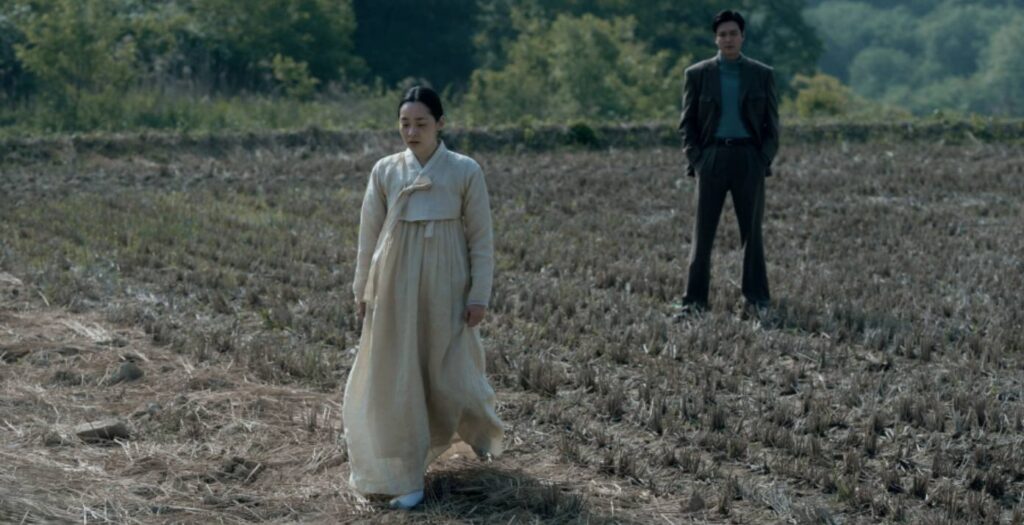
Where the series’ debut season looked at the beginning of difficulties and the compounding effect of bigotry and imperialism that Sunja is thrust into, Pachinko Season 2 is about what happens as you move forward. How do you survive the horrors of war? How do you survive nationalist bigotry? How do you swallow your pride to help your family, or in multiple cases, receive help from your family? Watching the Baek family navigate these questions throughout the generations is gutting. But watching them stand tall even as the world tries to shake their foundation is cathartic.
Pachinko is a Korean story that hones in on the generational trauma that imperialism has left on the Baeks. But it’s also a universal story that many of us with legacies of tragedy and not trust funds can see ourselves in. Pachinko Season 2 opens the story wider and explores the pressures that particularly affect the men of the family.
The trauma from 1945 reverberates from the past and into the present and is something that Sunja can’t escape even in her old age. But that’s the reality of living through imperialism. Seeing how the same forces impact and push Solomon but with a different burden of success and masculinity is heartfelt. It also runs parallel to what Noa experienced in the family’s past.
In Pachinko Season 2, Soo Hugh understands that people contain multitudes.
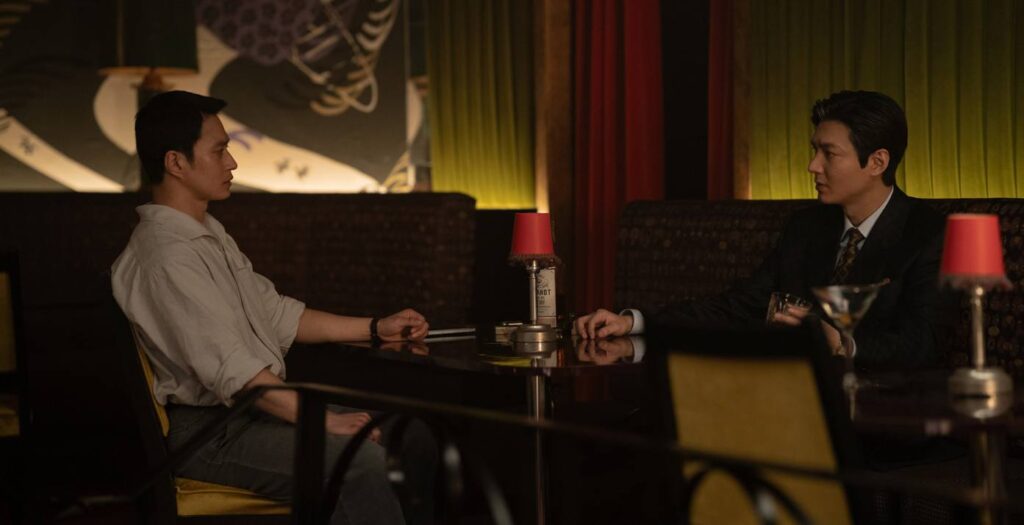
Pachinko Season 2 delicately captures the multitudes of our identities and how we navigate the world through them. For Sunja, she is a widower in a world that doesn’t help women succeed on their own. She’s a mother who just wants something better for her sons. She’s a woman who was hurt by the love she carried for a man who refused to disrupt respectability.
Sunja has lost so much in her life, and still, she only allows the world to see her smiles. Her story is heartbreak after heartbreak and being forced into surviving it. Watching Sunja through the years is painful. Her resiliency is heartbreaking.
On the other hand, we have Lee Min-ho‘s Koh Hansu. He’s a man who has seen great success but sold himself off in pieces. His name and his Korean identity are masked as much as he can muster, only to be reminded that he will never be Japanese in every room he enters. He has wealth and power, but when it comes to his son Noa, he is utterly powerless.
Noa is caught between the child he believes his mother deserves, honoring the man he calls father, and accepting the help and advice to leave his home and go to university. As his parentage becomes central, he’s tackling the very idea of who he is while also having to navigate a world that keeps forcing him to say he isn’t Korean.
And then, in the present, Solomon is carrying the weight of his family’s debt. He is also carrying his own insecurities as microaggressions and bigotry with partners pile up inch by inch, threatening to crush him. He has what he needs to succeed; he speaks perfect Japanese and English, but he has to betray history and his connection to his community to keep advancing. He knows what he is giving up, and the resentment it builds when he says that he can not pity his grandmother Sunja or father anymore brings his sense of self crashing down. Solomon doesn’t want to fail, but more importantly, he doesn’t want to be a disappointing son.
Pachinko Season 2 continues to do right by its female characters.
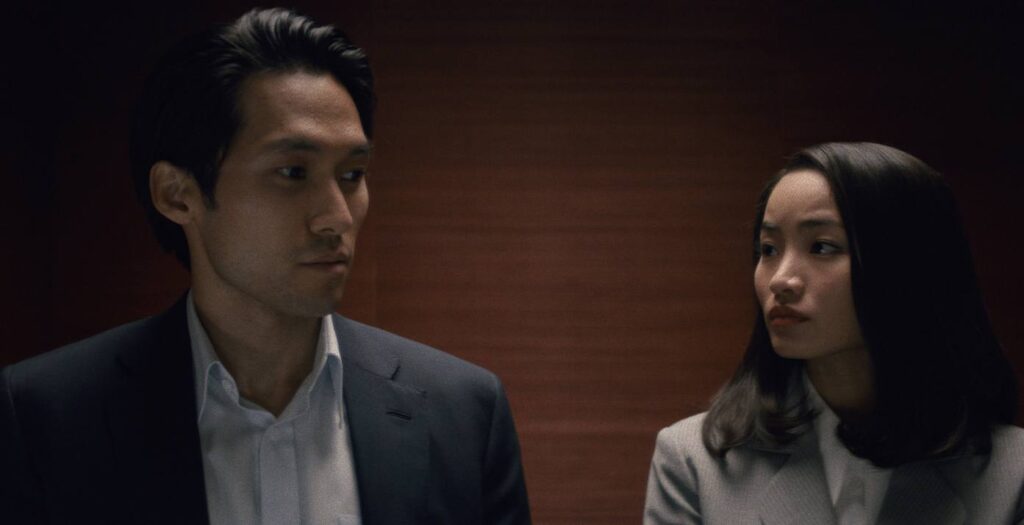
Even with a larger focus on the men of Pachinko in Season 2, Sunja is beautifully explored. With two actresses bridging her story in the past and the present, Kim Minha and Youn Yuh-jung, are breathtaking actresses. Both women are able to move mountains with subtle expressions. Sunja reacts to the world around her, but she is never consumed by it. She is stalwart, curious, and she has learned to live with her shadow. Both actresses Kim and Youn give audiences performances that deserve to be talked about as the best on television.
Additionally, it’s not just the primary characters that get nuanced and delicate explorations of relationships and survival. Sanju’s son in the future, played by Soji Arai, adds mystery and depth to the familial troubles and hesitations. Jung Eun-chae and Kim Sung-kyu as Kyung Hee and Mr. Kim, respectively, add even more complexity, grief, and yearning. In 1989, Naomi (Anna Sawai) adds the feminine perspective to the workplace that runs analogous to Solomon’s difficulties.
Ultimately, Pachinko Season 2 is encapsulated in its last moments. Sunja asks herself, “Why do some people survive when others do not?” That is the crux of the series. It’s about what we carry, what we break under, and those who have been lost. By tracing the ripples of trauma through one family, Pachinko offers a salient and intimate understanding of resiliency without disregarding your sorrow or grief. Pachinko Season 2 is a masterpiece that showcases the importance of television as a medium to tell stories. Each episode progresses and builds into a somber crescendo that reflects on the journey.
Pachinko Season 2 premieres on AppleTV+ August 23, 2024.
Pachinko Season 2
-
Rating - 10/1010/10
TL;DR
Pachinko Season 2 is encapsulated in its last moments. Sunja asks herself, “Why do some people survive when others do not?” That is the crux of the series. It’s about what we carry, what we break under, and those who have been lost.

